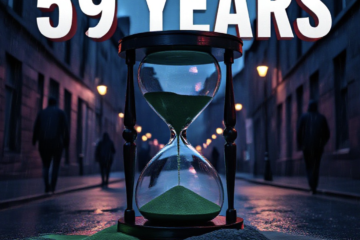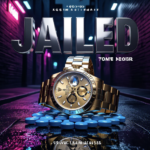A government appointed expert group in Scotland has called for sweeping changes to abortion laws, including decriminalization and access on request up to 24 weeks. The report, released on November 14, 2025, aims to treat abortion as a healthcare matter and remove outdated criminal penalties that stigmatize women.
The Abortion Law Review Expert Group, set up by the Scottish Government in 2024, reviewed the current framework based on the 1967 Abortion Act. They argue the law no longer fits modern society and creates barriers to safe care. This push comes amid growing calls across Europe for reforms that align with human rights standards.
Key Recommendations from the Expert Report
The expert group outlined 38 detailed suggestions to modernize Scotland’s abortion rules. They want to shift the focus from criminal law to healthcare, giving women more control over their choices.
First, the group recommends full decriminalization. Under current rules, abortion outside specific conditions can lead to prosecution, which they say causes fear among providers and patients. Removing these penalties would let trained healthcare workers handle cases without legal worries.
They also propose abortion on request up to 24 weeks of pregnancy. This means no need for reasons like health risks in early stages. After 24 weeks, two healthcare professionals would need to agree the procedure is appropriate, except in emergencies to save the woman’s life.

Here are some core changes in bullet points:
- End the two doctor approval rule for abortions before 24 weeks to speed up access and reduce delays.
- Allow abortions outside clinics in some cases, like at home for medical procedures, which already make up 97 percent of cases in Scotland.
- No ban on sex selective abortions, as the group believes focusing on grounds is outdated; instead, emphasize overall access.
- Repeal old laws on concealing birth to avoid punishing women who miscarry or end pregnancies privately.
These ideas build on evidence from places like Victoria in Australia, where similar reforms cut stigma and improved services.
How Current Abortion Law Falls Short
Scotland’s abortion rules stem from the 1967 Act, passed in Westminster decades ago. Back then, society looked different, with most women expected to marry and have kids early. Today, one in five women chooses not to have children, and medical tech has advanced a lot.
The law sets strict grounds for abortion, like risks to the woman’s health or severe fetal issues. It requires two doctors to sign off, which the experts call paternalistic and unnecessary. In 2024, Public Health Scotland reported over 20,000 abortions, mostly early and medical, yet the criminal shadow lingers.
This setup creates a chilling effect. Women fear police probes if they seek care outside guidelines, even if it’s safe. Providers worry about lawsuits, leading to uneven services across the country. The group notes that before 1967, illegal abortions killed many women, showing bans do not stop the need but raise dangers.
To show the differences clearly, here is a table comparing the current law to the proposed reforms:
| Aspect | Current Law (1967 Act) | Proposed Reforms |
|---|---|---|
| Gestational Limit | Up to 24 weeks on health grounds; later for severe cases | On request up to 24 weeks; two pros after for non-emergencies |
| Approval Process | Two doctors must certify before 24 weeks | No approval needed before 24 weeks; two healthcare workers after |
| Location of Procedure | Must be in approved hospitals or clinics | Can be at home or community settings for medical abortions |
| Criminal Penalties | Up to life in prison for illegal acts | Full decriminalization; no prosecutions for seeking care |
| Sex Selection | Implicitly banned as not a valid ground | No explicit ban; treated as healthcare decision |
This table highlights why experts see the old system as not fit for purpose in 2025.
Support Grows from Health and Rights Groups
Many in the medical field welcome the report as a step forward. The Royal College of Obstetricians and Gynaecologists called it progress toward safe access without fear. They point out that nurse led care works well in countries like Sweden and France, and Scotland could follow suit.
Civil society voices, including those focused on reproductive rights, praise the chance to end stigma. One leader noted it would let women decide their pregnancies freely, matching World Health Organization advice. In Scotland, where abortions rose slightly last year due to better reporting, supporters say reforms would make services more efficient.
This aligns with recent trends. Just last month, England saw debates on similar issues, and across Europe, most nations allow request based access by 12 to 14 weeks. Groups argue that treating abortion like any health service reduces complications and supports women’s equality.
Opposition Voices Raise Alarms on Extremes
Not everyone agrees with the proposals. Pro life organizations label them dangerous and out of step with public views. They worry about abortions up to birth becoming easier, especially without bans on sex selection, which often targets girls in some cultures.
One campaign group urged the government to reject the ideas, saying they could harm women and unborn children. They cite polls showing most Scots oppose full decriminalization and 89 percent against sex selective procedures. Critics also question the expert group’s makeup, noting many members link to abortion providers, which they call biased.
In a related event, protests in Edinburgh last week highlighted fears over late term access. Opponents link this to broader debates, like recent U.S. state laws tightening rules after court changes. They push for more support for crisis pregnancies, like better financial aid for mothers, instead of expanding options.
Path Ahead for Scottish Lawmakers
The Scottish Government now holds the report and plans to review it closely. The Minister for Public Health and Women’s Health will consult stakeholders before deciding on legislation. This could mean bills in Holyrood next year, tying into the 2025 26 Programme for Government.
Experts stress timing matters. With elections on the horizon, parties may weigh voter opinions carefully. Recent data shows mixed support: while younger Scots favor access, rural areas lean conservative. The government committed to this review in 2023 to make abortion a health issue, not a crime.
International bodies like the UN back decriminalization to protect girls and women. If passed, Scotland would join most European peers, potentially cutting health disparities. But debates will heat up, balancing rights with protections.
This reform debate touches lives deeply, offering insights into how Scotland handles sensitive health choices. Readers, what are your thoughts on these changes? Share in the comments below and spread the word to spark more discussion.


















